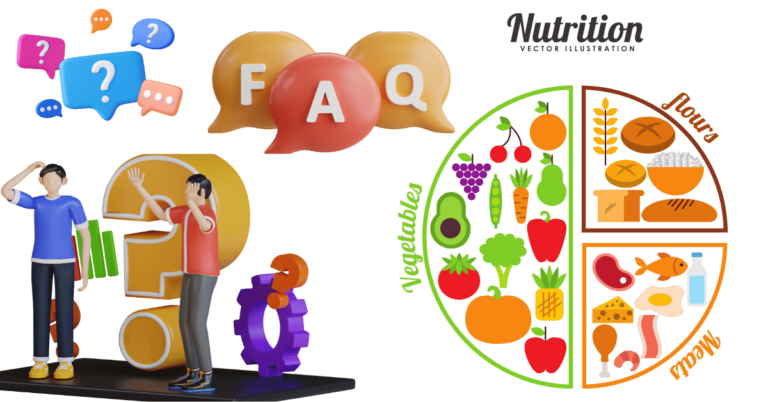Nutrition is a process by which every living organism consumes food and breaks it down to gain energy and essential vital nutrients.
These essential Nutrients are then utilized by the body for growth and development. It also helps to increase immunity against diseases. Helps to fight off ongoing diseases and illness.
Nutrition requirements depend on age, body weight, and body height. It differs from one organism to another.
Why is Nutrition and Health Important?
Nutrition is important for the Health and development of the body. Nutrition and Health are both related. Good Nutrition results in better Health.
Lack of proper Nutrition leads to ill health and disease.
Importance of Nutrition
Nutrition is important. One should eat nutritional food and make this a habit.
Below are the benefits of good nutrition.
Good Nutrition results in Good Health.
Overall development of the body.
Development of various organs and body parts.
Build immunity and protect from diseases.
Healthy Pregnancies and breastfeeding.
Healthy digestive system.
Protects from chronic non-communicable diseases like Heart disease, Diabetes and Cancer.
Prevents Malnutrition in children
Prevents Obesity
Helps in weight management.
Good Nutrition results in Good Health.
Overall development of the body.
Development of various organs and body parts.
Build immunity and protect from diseases.
Healthy Pregnancies and breastfeeding.
Healthy digestive system.
Protects from chronic non-communicable diseases like Heart disease, Diabetes and Cancer.
Prevents Malnutrition in children
Prevents Obesity
Helps in weight management.
What are the Roles of Nutrition in Health
Nutrition plays an important role in maintaining Health. Since the rate of Chronic diseases is increasing at an alarming rate. This is due to improper intake of Nutrition and lack of physical inactivity.
Chronic diseases refer to Heart diseases, Diabetes, Cancer and Obesity. This is increasing at a very fast rate and many youngsters are becoming part of these diseases.
The role of Nutrition is very close to the Benefits of Nutrition. Important Benefits of Nutrition have already been discussed above.
Let us look at the broader aspect of the
Roles of Nutrition.
Support the Growth of the Human Body.
Build a strong Immune System.
Repair of Muscles, Skin and Tissues.
Provides energy to do work.
Manage weight of body.
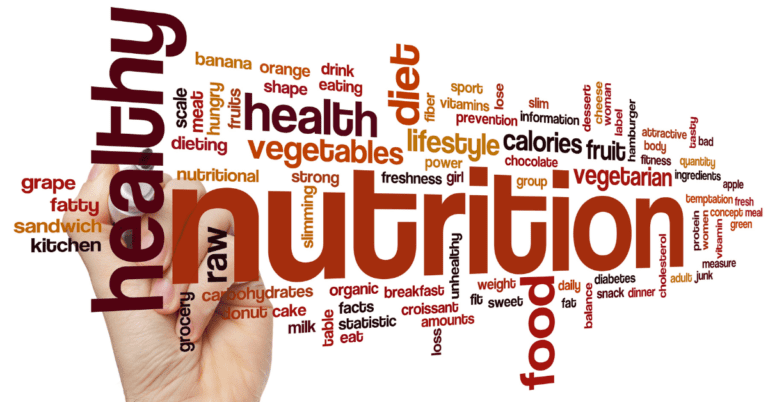

The Role of nutrition depends on the intake of 7 types of Nutrients. These 7 nutrients have different but essential impacts on the human body.
These 7 Nutrients are required in a balanced way. Deficiency or Extra intake of these 7 Nutrients harms the human Body.
Deficiency of Nutrients –
It leads to Malnutrition in children
Improper functioning of body parts
Leads to Obesity
Fatigue
Weakness
Anaemia
Excess Nutrients –
Weight Gain – Taking more calories intake than that can be burned leads to an increase in weight.
Metabolism – It hinders metabolism and accumulation of nutrients in the Kidney, Liver leading to disorders and Organ failure.
Toxicity – Accumulation of nutrients that are not broken by the body leads to toxicity.
Hyponatremia – Water is required to keep the body hydrated, but excess use may lead to dilution of sodium around the cells. Leading to fatigue, headache, seizures and even death.
Types of Nutrition
Nutrition are classified primarily based on the mode, and how they get their nutrition from.
Every organism has different sources of Nutrition. Some prepare their food, while some depend on other organisms to get Nutrition.
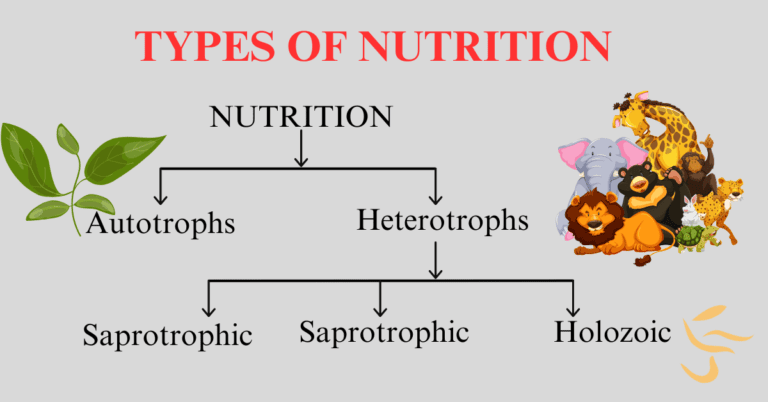

Autotrophic Nutrition –
Derived from two words Auto means self and Trophic means nutritions.
Living organisms prepare their food and store it in the form of Glucose which can be used later.
They use water, carbon dioxide, light, and chlorophyll (a green pigment used to trap light) to prepare their food. This process is called Photosynthesis.
Examples Plants, Algae, and bacteria.
Heterotrophic Nutrition –
All Living organisms are not capable of preparing their food. They derive nutrients from other living organisms, both plants and animals. They are called heterotrophs
Examples – Fungi and all animals including humans are heterotrophs
Different types of Autotrophs
Autotrophs are further classified based on the energy source. Using the energy source they prepare their food.
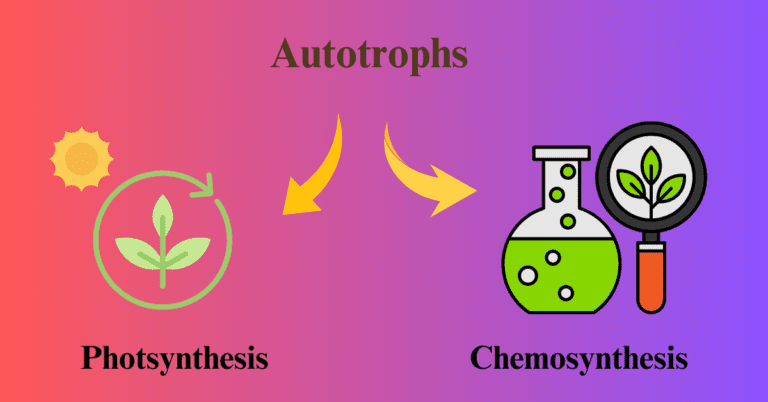

Photoautotrophs –
Use photosynthesis as a source of energy.
Chemoautotrophs –
Chemical process (Chemosynthesis) for a source of energy.
Different types of Heterotrophic Nutrition
Heterotrophs are further classified based on the mode of feeding or feeding habits.
One Organism feeds on another organism. Thus passing nutrients and energy from one to another.
This is also called the Food Chain
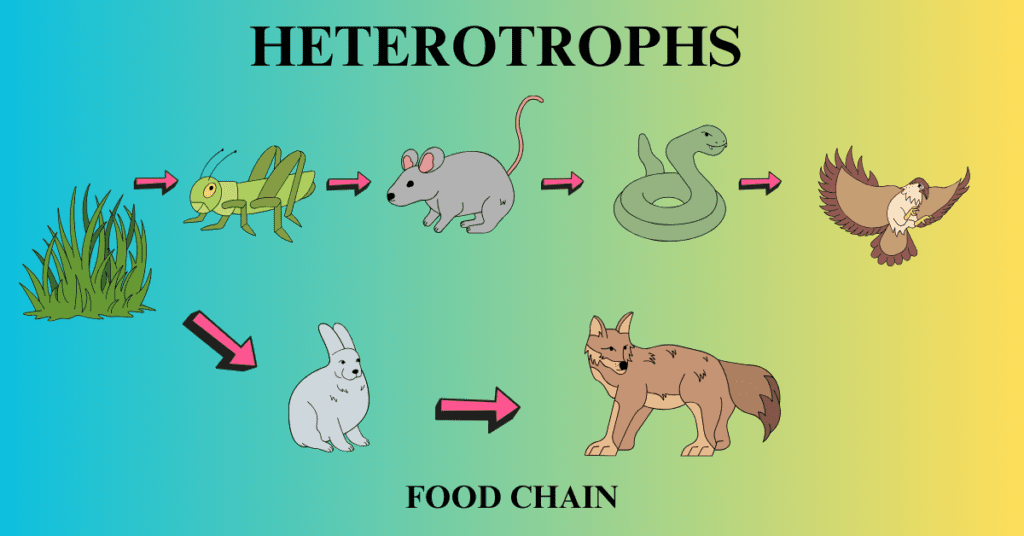

Saprotrophic –
Organisms derive their nutrition from other dead and decaying matter.
Saprophytic –
Here two or more organisms mutually depend on each other to derive their nutrition. Also known as commensalism Parasitism and mutualism are two modes of this nutrition.
Holozoic –
Living organisms feed on other plants and animals to derive the nutrition.
Depending on the choice of food they can be further classified into:-
Herbivores – Animals eat only plants.
Carnivores – Animals eat other animals.
Omnivores – Eat both plants and animals.
The Parasitic type of nutrition is also considered under this. Where one organism lives on and gets food from other organisms.
Examples – like Tapeworms, Leeches and Ticks.
They live on the body of other organisms and derive nutrition from them.
Difference between Autotrophs & heterotrophs
Autotrophs |
Prepare their food |
Included Photosynthesis & Chemosynthesis |
Chlorophyll is present |
Known as Producers |
Plants and Algae |
Heterotrophs |
Depends on others for food |
Holozoic, Parasitic and saprophytic nutrition |
No chlorophyll |
Known as Consumers |
Animals including Human beings |
What is the Best Nutritional Foods to Eat?
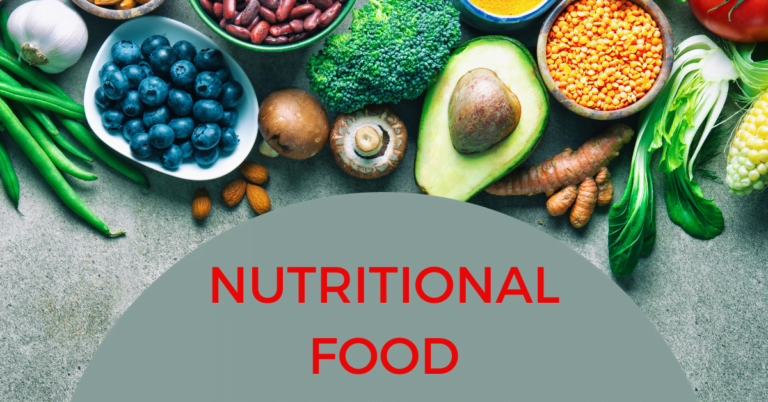

Health is Wealth. Health is one of the top priorities for the Health Enthusiast.
Keeping the body in good shape is the trend of the Future and Present. Various foods with high nutritional value help in maintaining good health, good body shape and texture.
Good nutrition prevents the occurrence of diseases and illnesses.
Top 10 Nutritional Foods to Eat.
Fish
Green Leafy Vegetables
Nuts
Meat and Poultry
Legumes
Quinoa
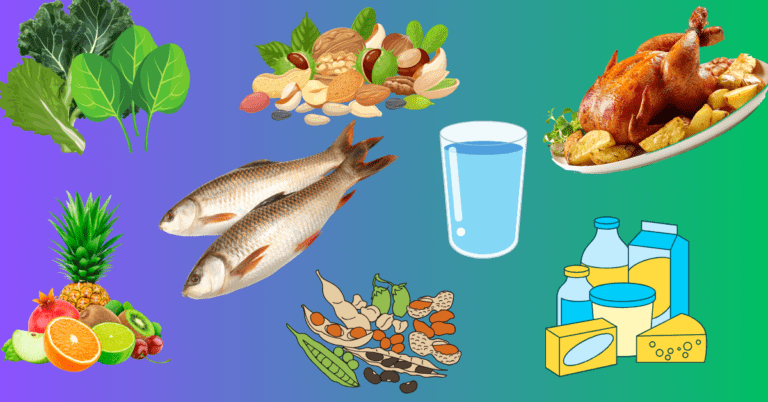

Water
Seeds
Fruits
Milk and Dairy Products
Fish –
Seafood are good source of omega-3 fatty acids which are very much essential for the body. They are also a good source of Vitamin D, Vitamin K, B12 and Protein.
These include both freshwater and backwater fishes
Examples – Salmon, Sardines, Tuna and Shrimp.
Green Leafy Vegetables –
Rich in fibre, Vitamin K and C are good sources of antioxidants
Examples – Spinach, Cauliflower, Cabbage, Broccoli, Hydroponics and Lettuce
Nuts –
Nuts are rich in Unsaturated fatty acids. They help to lower cardiovascular diseases, cancer and health issues. Also, aids in managing weight.
Examples – Almonds, Brazil nuts, Walnuts, Pistachios
Meat & Poultry –
Lean Meat is rich in protein and low in fat. Avoid fatty meat which contains more Saturated Fatty acids.
Along with Protein good source of Iron, Omega-3 fatty acids.
An egg is rich in protein and is a very nutritious food.
Legumes –
These are foods low in fat and high in fibre. They are good sources of Protein, Magnesium and Iron,
Examples – Green Beans, Lentils, Kidney Beans, Peanuts and Chick Peas.
Quinoa –
It is a plant-based protein with high fibre content. It helps in weight loss
Water
Water keeps the body hydrated. It prevents dehydration and drain of energy.
Drinking 8 to 12 glass of water daily, remove toxins and waste from the body.
Seeds –
Low in Fat, High in Fibre. Good source of Vitamins, Proteins, Minerals and Antioxidants.
Examples – Flax seeds, Chia seeds, fibre, Pumpkin seeds, Watermelon seeds,
Fruits –
One should eat fruits as they are good sources of Fibre and Vitamin C. Fruits can be used as fillings in between our meals. They are good antioxidants.
Examples – Apples (fibre, Vitamin C good for health), Avocados, Bananas, Berries, Oranges and Strawberries
Milk and Dairy products –
Milk, Cheese, Yoghurt (prepared by milk fermentation using live bacteria).
Good source of Vitamins, Minerals, Proteins and Calcium.
Conclusion
Good Nutrition results in Good Health. So we all should give more priority and include Nutritious food in our meals.
Please Click Here to visit my Space in Quora. This space is related to the topic of Nutrition and Health. You can find more Posts and FAQs. You can also Follow my space and ask questions.
If you are interested in joining and contributing to the Space. Please scroll down and click on “Want to be a contributor? Apply here”.
Related Posts
FAQs – Frequently Asked Questions Answers to the frequently asked questions related to...
Answers to the frequently asked questions related to Nutrition for good Health and Well-being...
On-page SEO, the name defines where the optimization would be required. It is the process for...
Based on the techniques which are being followed for the optimisation of Webpage. The following are...
SERP Elements (Search Engines Result Page) Besides just displaying the title and the website name...
The primary importance of SEO is to rank the website higher, increase visibility and attract large...
SEO is a process that is very important for ranking any website. It ranks websites higher so that...
Hiring in BPO is an ongoing activity. This doesn’t stop, goes on based on the requirement...
BPO services are not limited to one sector. BPO Services has grown tremendously and occupied more...


